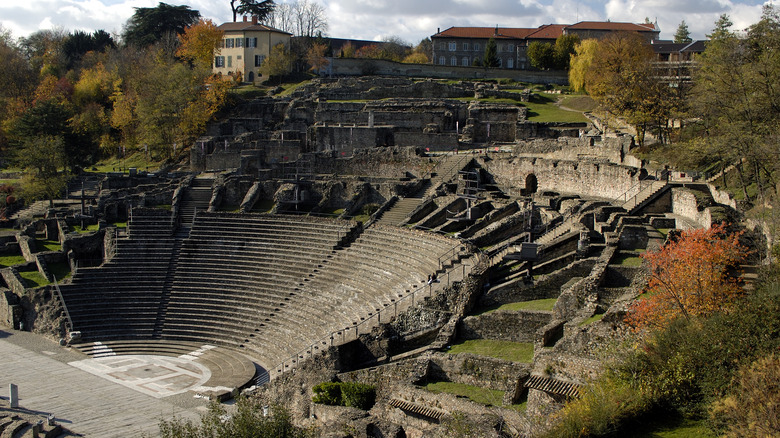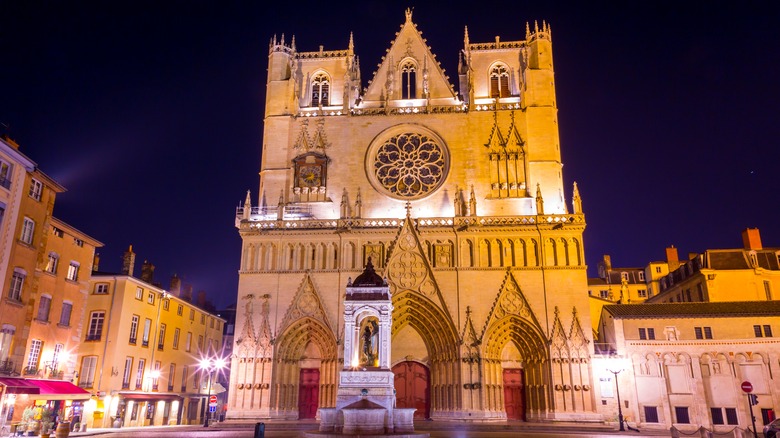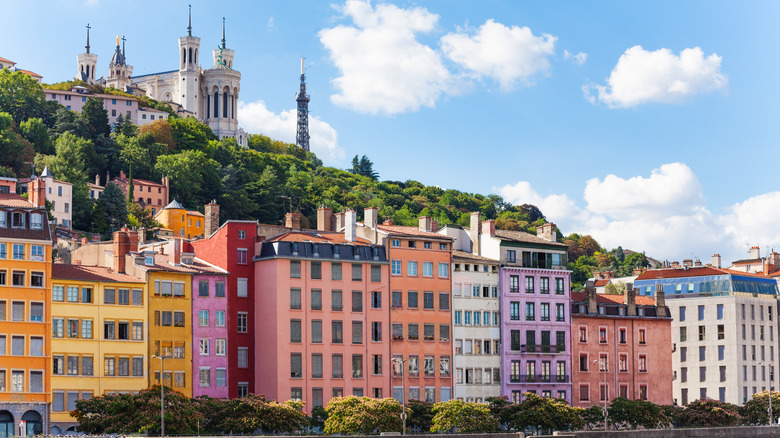In the 21st century, European cities large and small are inundated with international brands like Nike, McDonald’s, Starbucks, and occasional tourist traps you’ll want to avoid. While these cities are still well worth visiting, it is also beneficial to seek out lesser-known locations with more local culture. Ever the savvy on and off the beaten path, European travel expert Rick Steves recommends Lyon for all the beauty of France’s well-touristed cities, but with a stronger French feel.
Lyon is filled with history that goes all the way back to the region’s time as part of the Roman Empire. “Lyon is France’s most historic and culturally important city after Paris,” Steves states on his website. You’ll see classic European cobblestone streets, massive cathedrals, and a mixture of old and new in its buildings. Though it is among France’s larger cities, it features natural elements like hilltops and two rivers through the city center in an overall pleasant environment. “This big city feels relaxed, welcoming, and surprisingly untouristy. It seems everyone’s enjoying the place — and that they’re all French,” says Steves.
See Roman ruins on a hilltop in Lyon

Ancient history lovers will have plenty of Roman Empire remnants in Lyon. The best of Lyon’s Roman sites are at the top of Fourvière Hill. The funicular on the west side of Pont Bonaparte, which crosses the Saône River, can get you to the hilltop. Head southwest to find the Gallo-Roman Museum of Lyon-Fourvière, also known as the Lugdunum Gallo-Roman Museum. Roman artifacts here include a speech from A.D. 48 given by Emperor Claudius, uncle of the infamous Emperor Caligula. This museum also gets you close to two Roman amphitheaters, Théâtre Gallo Romain de Lyon-Fourvière and Odeon of Lyon. Among the innovations of the Roman Empire was water transportation. Behind the amphitheaters on Fourvière Hill are pieces of Aqueduc du Gier, a Roman aqueduct.
Fourvière hill also includes one of Rick Steves’ favorite places to visit: the bright and imposing Basilica of Notre Dame of Fourvière built in the 1800s, which is not old by France’s standards. The chapel next to it and its Virgin Mary statue, however, date back much further. Northwest of the basilica is Parc des Hauteurs with gardens and views of the city, especially at Passerelle des Quatre Vents within the park.
Saint-Jean-Baptiste Cathedral lights up at night

Between Lyon’s two rivers is Place des Terreaux, a historic market hub dating back to the Renaissance — a time when bankers and salespeople found success in Lyon. The fountain at this square was sculpted by Frédéric Auguste Bartholdi who also sculpted the Statue of Liberty. In keeping with the area’s history, Place des Terreaux is still a popular gathering place due to its restaurants like Le Moulin 1883 (Lyon is an unexpected foodie destination) and the massive Museum of Fine Arts. This museum’s vast collection includes Egyptian artifacts and centuries of paintings housed in a former abbey constructed in the mid-1600s.
One of the adventurous ways to see Lyon is by simply wandering through a section of the city called Vieux Lyon along the west banks of the Saône River. Among the highlights is Rue Saint-Jean, an access point for one of Lyon’s traboules, which are covered pedestrian streets. Keep wandering for more of these unique and narrow passageways, even into the night. “Each night, more than 200 buildings, sites, and public spaces are gloriously floodlit,” says Rick Steves on his website. One of the buildings that lights up each night is the Saint-Jean-Baptiste Cathedral, a highlight of Lyon since the 1400s.

